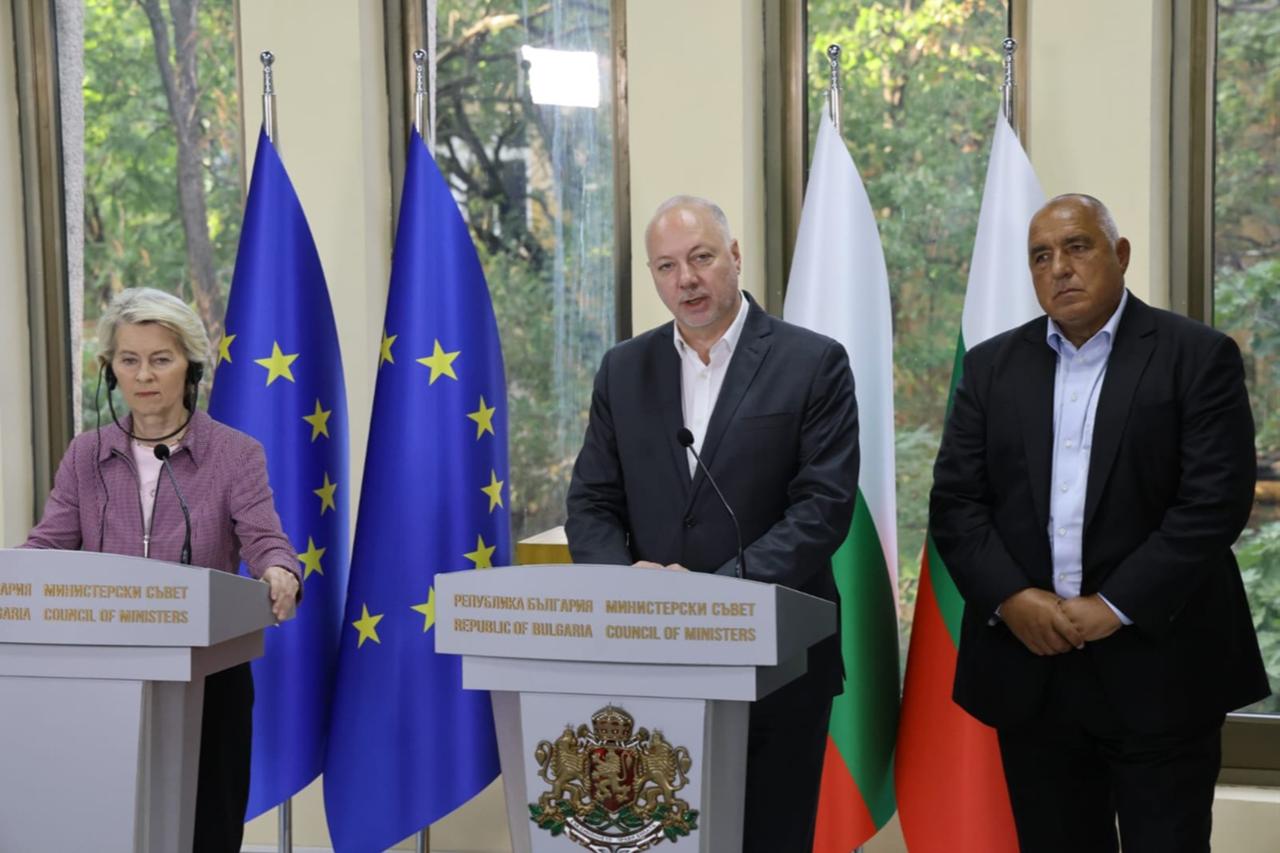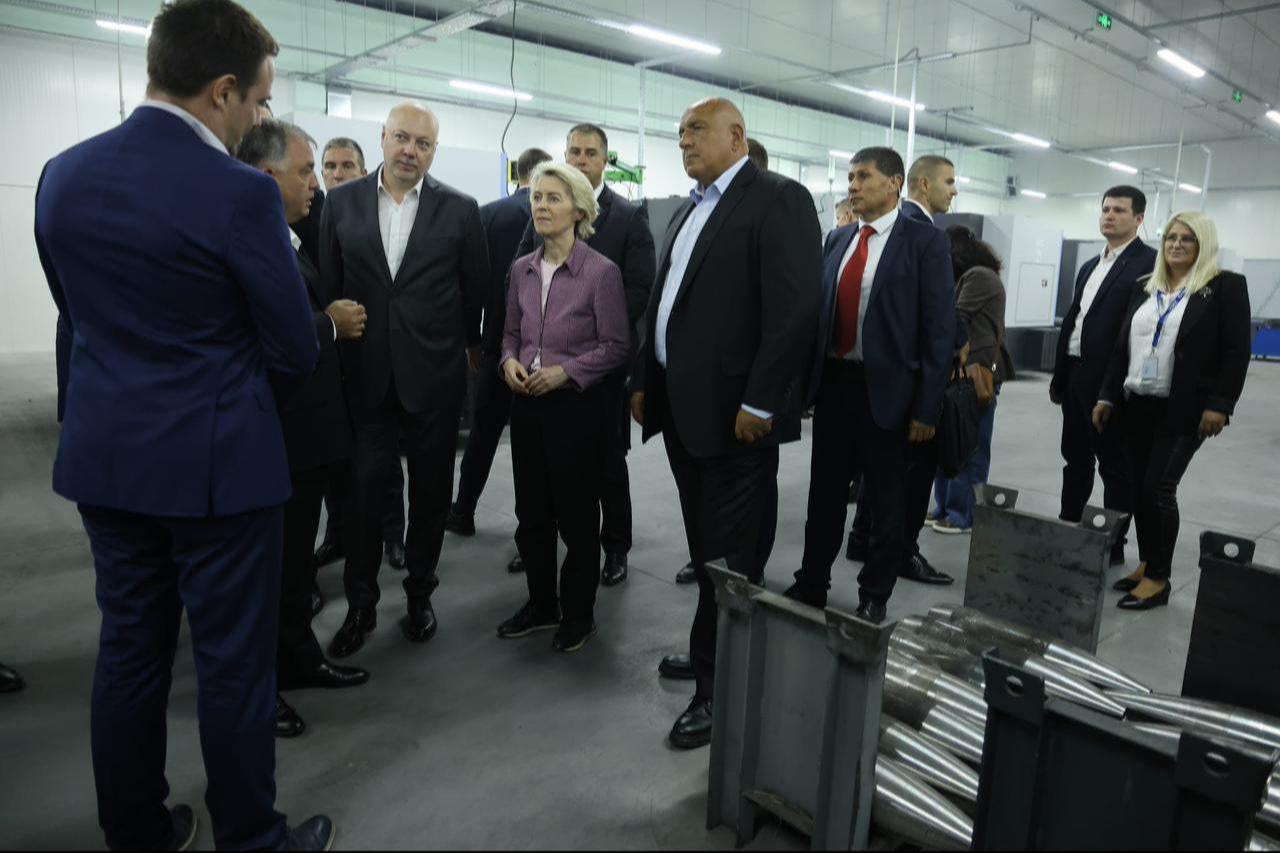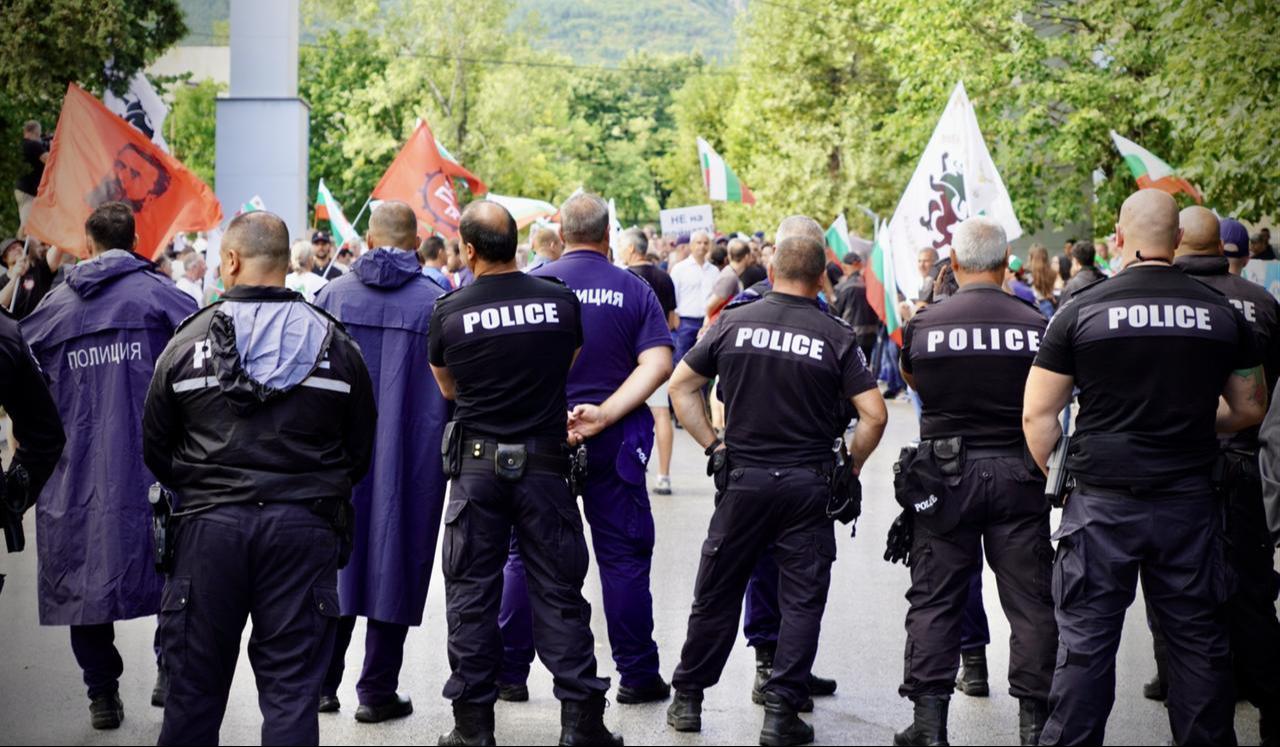
European Commission President Ursula von der Leyen’s recent visit to Bulgaria underscores the country’s rising importance in Europe’s collective defense, particularly amid the ongoing war in Ukraine. At the VMZ-Sopot ordnance plant, one of Bulgaria’s longstanding defense facilities, von der Leyen highlighted the nation’s pivotal contributions to Ukrainian security and outlined plans for deeper integration into E.U. defense structures.
Von der Leyen reminded delegates that roughly one-third of Ukraine’s weapons at the beginning of Russia’s invasion came from Bulgaria, demonstrating Bulgaria’s key role in regional defense. “I want to thank Bulgaria for this extraordinary contribution in defense of its neighbor and friend, Ukraine,” she said, stressing that Moscow’s aggression can only be restrained through coordinated military capacity.
Prime Minister Zhelyazkov reinforced the message, highlighting Bulgaria’s commitment to supporting allied operations in the Black Sea, from mine-clearing missions to providing critical airport infrastructure for NATO forces. These actions, he noted, would be undertaken within the framework approved by Bulgaria’s National Assembly, highlighting the country’s commitment to both national and collective European security.

A central focus of von der Leyen’s visit was Bulgaria’s involvement in the E.U.’s SAFE (Security of Europe) mechanism, a €150 billion initiative designed to expand European weapons production, facilitate joint procurement, and promote technology transfer across member states. Bulgaria’s integration into this program signals a shift from a regional defense player to a strategic contributor within the E.U.’s broader security architecture.
Under the SAFE framework, VMZ-Sopot is set to undergo significant expansion. Plans include the construction of two new facilities: one dedicated to gunpowder production and another to manufacturing 155mm artillery shells that comply with NATO standards. These facilities, developed in collaboration with Germany’s Rheinmetall, are expected to create up to 1,000 new jobs, boost Bulgaria’s production capacity, and strengthen the country’s position as a central hub for European defense manufacturing.
Von der Leyen framed these investments as a long-term strategy for European resilience, stating, “We are accelerating production across Europe because the times demand it.” She stressed that Bulgaria’s defense industry will not only meet Ukraine’s immediate needs but also support the E.U.’s broader military preparedness for years to come.

Despite broad political and institutional support for Bulgaria’s defense expansion, von der Leyen’s visit to VMZ-Sopot was met with visible public dissent. Dozens of protesters, organized by the nationalist Revival party and led by its outspoken leader Kostadin Kostadinov, gathered outside the facility to voice their opposition. The demonstrators waved banners and chanted slogans condemning what they described as “dangerous” military projects imposed by the European Union.
The protest highlighted a deeper societal debate in Bulgaria, where a segment of the population remains wary of closer military cooperation with the E.U. and fears that increased defense production could make the country a target in potential regional conflicts. Some protesters argued that the expansion prioritizes foreign interests over national safety, framing it as a symbolic imposition of E.U. priorities rather than a strategic choice made by Bulgaria itself.
In response to these concerns, political leaders moved quickly to reassure the public and contextualize the initiatives. Former Prime Minister and GERB party leader Boyko Borissov emphasized that Bulgaria’s defense industry is not new—it has existed for decades—and that modernization is essential to maintain national and regional security. Borissov argued that participating in European defense projects strengthens Bulgaria’s strategic position rather than exposing it to danger.
Adding an expert perspective, former Defense Minister Todor Tagarev told Nova TV that fears of Bulgaria becoming a military target are unfounded. He dismissed such concerns as “Russian propaganda,” highlighting Bulgaria’s long-established role as one of Europe’s leading ammunition producers. Tagarev noted that the planned expansions, including the development of advanced production facilities at VMZ-Sopot, are intended to meet NATO standards, strengthen regional stability, and ensure that Bulgaria continues to be recognized as a reliable player in European defense.